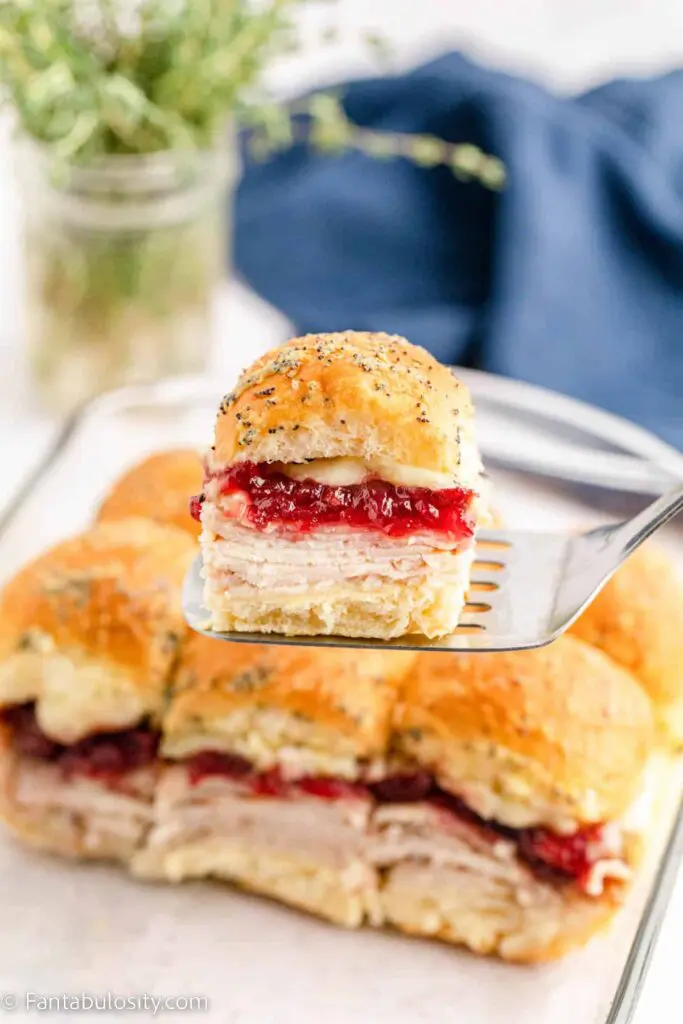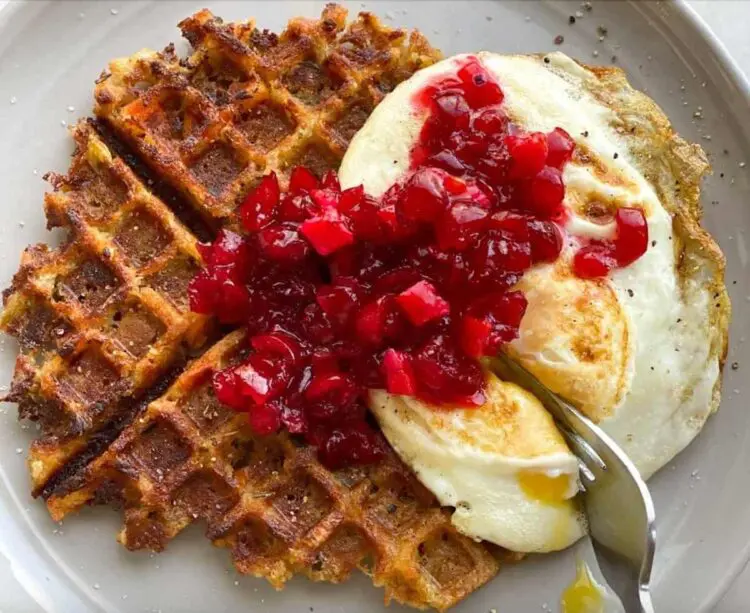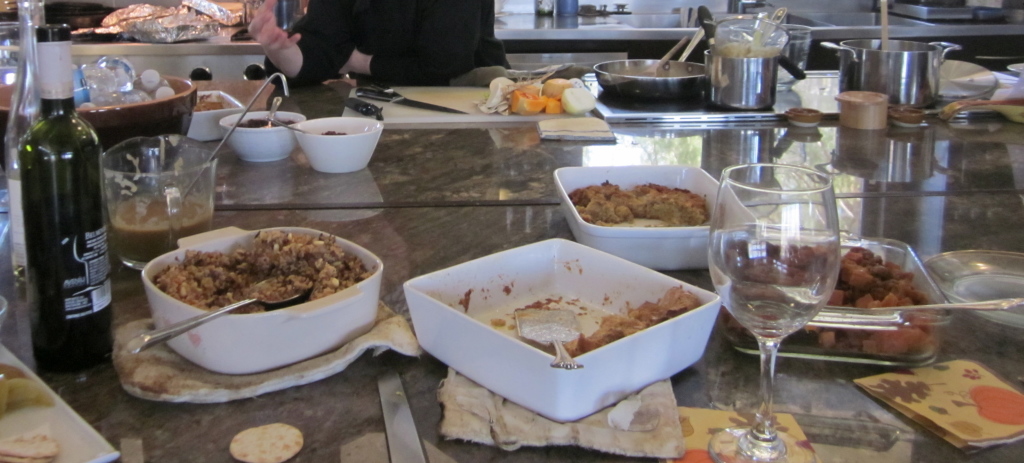For many Americans, Thanksgiving is not a single day of feasting. Rather it is an event spread out over the course of a week. Begin with all the courses on the day of Thanksgiving, and then enjoy pie for breakfast the next morning, turkey sandwiches for lunch, and whatever is left for dinner. When it comes to storing your Thanksgiving leftovers, you may be wondering how long leftovers are good for and the best way to store each dish. I’ll give you those answers here. For each piece of the Thanksgiving feast, individual storage may be necessary to keep it fresh and crisp. Here is what to do Thanksgiving Leftovers as well as some tasty Thanksgiving leftover recipes and ideas.
How long are thanksgiving leftovers good for?
The FDA recommends that most cooked poultry and meats that are stored in the refrigerator (40 °F or below) should be consumed within 3 – 4 days. According to Healthline, cooked vegetables “stored in an airtight container will usually keep up to 3–7 days in the refrigerator.” Those those are your basic guidelines but more detailed food storage tips and lengths of how long foods stay safe below.
Thanksgiving Leftovers Storage Tips:
The answer to, “How long are thanksgiving leftovers good?” depends on how well you store them. In this post, we’ll take a deep dive into food storage for leftovers and share our top tips and tricks for keeping your food fresh. We will also share food safety guidelines for when each type of food should be consumed by.
Turkey Storage Tips
Try not to wait more than an hour or so until you begin packing up the meat and gravy, as food left at room temperature quickly picks up harmful bacteria. Carve all the meat off the bird and either throw away the bones or store them for stews. A turkey that has been cooked through can be safely stored in a refrigerator for four days before the meat is no longer good. It can be kept in a freezer for three months. The smaller the portions, the easier it is to re-heat the meat.
Gravy Storage Tips
Gravy has a short shelf life and must be refrigerated and eaten within the next day. When you take it out to be eaten, bring it to a boil on the stovetop in order to kill any microbes within the mix.
Cranberry Sauce Storage
Store bough cranberry sauce is chock full of preservatives and can be safely kept in a refrigerator for two weeks. The sugar in fresh made cranberry sauce helps preserve it and if stored by itself, it may be good for up to 10 days. Cover in plastic or glass containers and squeeze as much air out of the container as possible.
Stuffing Storage
The stuffing you use can last a while but runs the risk of going stale. You can eat it four days later but it may have dried out by that point. Ensure you remove all the stuffing from the turkey before you place it in the refrigerator.
Potato Storage
Potatoes are a great survivor of all food groups. You can safely keep mashed potatoes refrigerated for a week and can freeze them for a full year. Baked potatoes, however, do not have the same texture once they are frozen. Cooked sweet potatoes are also fine in the refrigerator for at least a week as long as they are wrapped and stored by themselves.
Pie Storage
In the rare circumstance that there is leftover pie, it can be left out in the open for a few days as long as the pies are covered (uncovered pies will dry out). You can store pies in a refrigerator for as long as a week, or freeze them for two months. When you freeze a pie, wrap it in foil or in plastic to retain moisture.
Thanksgiving Leftover Recipes & Ideas
Thanksgiving leftovers offer the perfect chance to get creative with a range of dishes that make use of all the extra turkey, stuffing, mashed potatoes, and cranberry sauce. Here are some ideas for tasty meals that breathe new life into holiday staples.

1. Turkey Cranberry Sandwich
- Ingredients: Turkey, cranberry sauce, stuffing, cheese (like brie or Swiss), sturdy bread.
- Instructions: Layer turkey, cranberry sauce, and a bit of stuffing between two slices of bread with cheese. Grill it like a panini until the cheese melts and the bread is golden brown.
- There are lots of variations on this theme but you may want to try these amazing Turkey Cranberry Sliders from Fantabulosity.
2. Thanksgiving Leftover Casserole
- Ingredients: Layers of mashed potatoes, stuffing, turkey, gravy, and cranberry sauce.
- Instructions: In a baking dish, layer mashed potatoes, stuffing, turkey, and gravy. Bake at 350°F for about 25–30 minutes. Add cranberry sauce on top after baking or on the side.
3. Turkey and Stuffing-Stuffed Peppers
- Ingredients: Bell peppers, stuffing, shredded turkey, shredded cheese.
- Instructions: Stuff halved bell peppers with a mixture of shredded turkey, stuffing, and a little gravy. Top with cheese and bake at 375°F for 20–25 minutes.
4. Mashed Potato Pancakes
- Ingredients: Mashed potatoes, egg, flour, salt, pepper, optional add-ins like cheese, green onions, or leftover veggies.
- Instructions: Mix mashed potatoes with a beaten egg and a bit of flour. Form into patties and fry in a skillet until golden and crispy. Serve with sour cream or cranberry sauce.
5. Thanksgiving Leftover Breakfast Skillet
- Ingredients: Stuffing, shredded turkey, mashed potatoes, veggies, eggs.
- Instructions: In a skillet, warm up stuffing, turkey, and veggies. Crack eggs over the top and cover the skillet until eggs are cooked to your preference.
6. Turkey Cranberry Quesadillas
- Ingredients: Tortillas, shredded turkey, cranberry sauce, cheese (like mozzarella or cheddar).
- Instructions: Spread cranberry sauce over a tortilla, layer with cheese and turkey, and top with another tortilla. Grill until the cheese is melted and tortilla is golden brown.
7. Turkey and Vegetable Soup
- Ingredients: Turkey, leftover veggies, broth, spices, noodles or rice (optional).
- Instructions: Simmer turkey and vegetables in a pot with broth. Add noodles or rice for a heartier soup. Season to taste with thyme, rosemary, and bay leaves.
8. Sweet Potato & Cranberry Muffins
- Ingredients: Leftover sweet potatoes, cranberry sauce, muffin batter (using a basic muffin recipe).
- Instructions: Fold leftover mashed sweet potatoes and cranberry sauce into muffin batter. Bake according to recipe instructions for a sweet, festive treat.

9. Stuffing Waffles with Turkey Gravy
- Ingredients: Stuffing, eggs, a bit of broth (to make it moist enough to press).
- Instructions: Mix stuffing with an egg and a bit of broth, then press it in a waffle iron until crispy. Serve with warm turkey gravy.
- You might want to try this particularly fantastic Leftover Stuffing Waffles recipe from Cook At The Home Mom.
10. Cranberry Turkey Salad Wraps
- Ingredients: Shredded turkey, cranberry sauce, mixed greens, wrap or tortilla, optional cheese.
- Instructions: Spread cranberry sauce on a wrap, layer with turkey, greens, and cheese if desired. Roll up and slice in half.
Conclusion
Were you wondering, “How long are Thanksgiving leftovers safe to eat?” Well, I hope those specific guidelines for each of the common Thanksgiving food types helps you out. Quickly store the Thanksgiving leftovers such as turkey and stuffing once the eating is finished. Allowing them to sit out after you are done eating, provides opportunity for them to begin to spoil. I hope you found this these for how to store your Thanksgiving leftovers helpful. Pay close attention to these food safety guidelines and your body will thank you!
These Thanksgiving recipes and ideas can help turn your Thanksgiving leftovers into delicious new dishes to enjoy through the weekend! Adding a few creative twists to the on hand good that needs to be used up is a genius way to enjoy these tasty feast items even longer. What are you favorite ways to enjoy Thanksgiving leftovers?
Related Posts:
Cranberry Swirl Mini Cheesecakes


Robin says
There’s never any stuffing left after Thanksgiving at our house. Ever.
Doris says
Last Thanksgiving I’ve had so much leftovers, just because I always cook too much, and now that we live more healthy I guess we are used to eating smaller portions now… so thanks a lot for sharing, these tips will come in handy next time! 😉